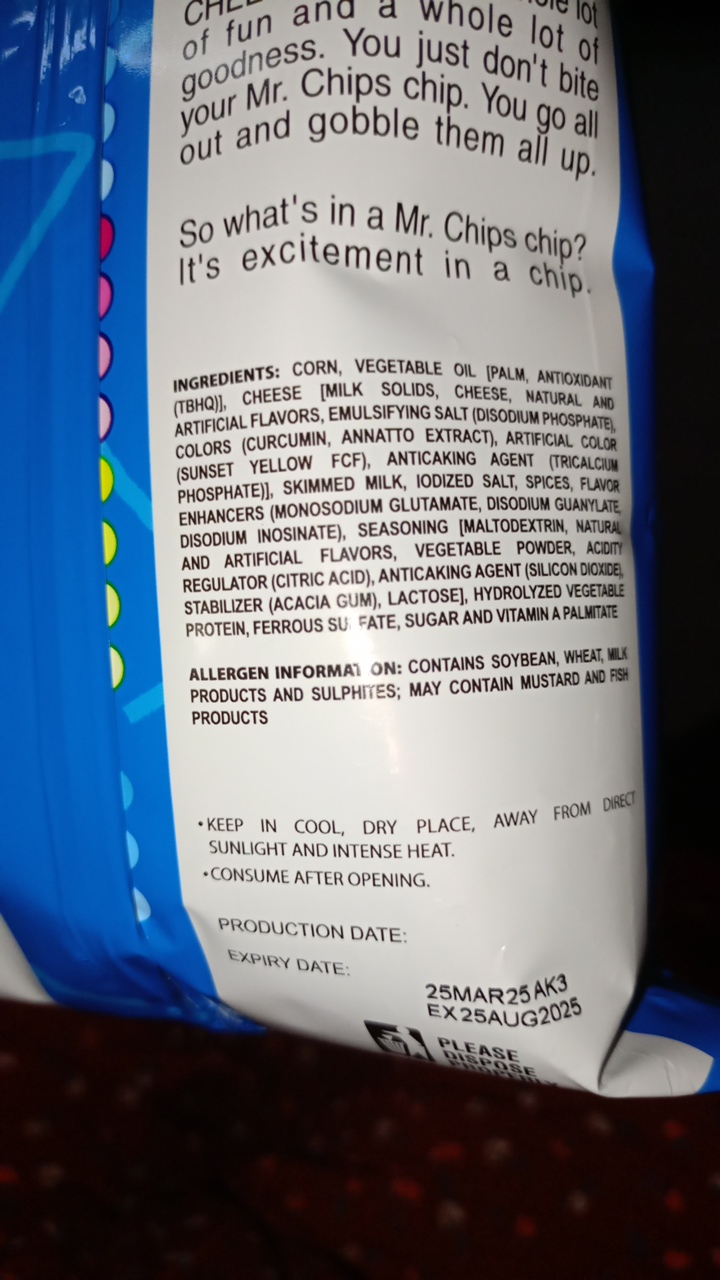
Barcode: 4800016653094
unknown
DOUBTFUL
📝 Reason: The product contains several ingredients with doubtful Halal status due to unspecified sources or components. According to Islamic dietary laws, any doubt about the Halal status of an ingredient makes the entire product doubtful. Therefore, the product is classified as Doubtful (2).
📄 Certificates: None
Ingredients:
Details
Understanding the Halal Status of the Unknown Product
The Halal status of food products is crucial for many consumers who adhere to Islamic dietary laws. In this post, we will explore the unknown product’s Halal status and dissect its ingredients to determine whether it meets Halal standards. According to our assessment, this product is classified as ‘Doubtful’ due to several ingredients with unspecified sources.
Why is the Product Considered Halal Doubtful?
The product’s Halal status is primarily affected by the ambiguity of certain ingredients and E-numbers. According to Islamic dietary laws, any uncertainty regarding an ingredient’s Halal status implicates the entire product. The uncertainty surrounding this product’s components makes it fall under the ‘Doubtful’ category.
Ingredient Breakdown
Let’s take a closer look at the various ingredients and E-numbers present in the unknown product and their corresponding Halal statuses:
- Corn: Generally considered Halal as it is a plant-based ingredient.
- Vegetable Oil: Also generally considered Halal since it is plant-derived.
- Antioxidant (TBHQ – E319): The source of TBHQ is unspecified, rendering its status doubtful.
- Cheese: Doubtful status given the unverified source of rennet.
- Milk Solids: Considered Halal as it’s derived from milk.
- Natural Flavor: Status is doubtful due to unspecified sources.
- Artificial Flavors: Doubtful status as the components are not detailed.
- Emulsifying Salt (Disodium Phosphate – E339): Considered Halal as it is synthetically produced.
- Colorants:
- Curcumin (E100): Generally considered Halal as it derives from turmeric.
- Annatto Extract (E160b): Halal since it is from achiote seeds.
- Sunset Yellow FCF (E110): Doubtful as it may contain non-Halal components.
- Anticaking Agent (Tricalcium Phosphate – E341): Halal as it is synthetically produced.
- Skimmed Milk: Generally Halal as it is derived from milk.
- Iodized Salt: Considered Halal as it’s a mineral.
- Spices: Generally considered Halal since they are plant-based.
- Flavor Enhancers:
- Monosodium Glutamate (E621): Halal as it is synthetically created.
- Disodium Guanylate (E627): Halal as it is synthetically produced.
- Disodium Inosinate (E631): Considered Halal as it is synthetically derived.
- Seasoning (Maltodextrin): Generally Halal as it’s derived from starch.
- Vegetable Powder: Halal as it comes from vegetables.
- Acidity Regulator (Citric Acid – E330): Considered Halal as it comes from citrus fruits.
- Anticaking Agent (Silicon Dioxide – E551): Generally Halal as it is synthetically produced.
- Stabilizer (Acacia Gum – E414): Halal as it is derived from acacia tree sap.
- Lactose: Considered Halal as it is derived from milk.
- Hydrolyzed Vegetable Protein: Halal as it is plant-derived.
- Ferrous Sulfate: Halal as it is a mineral.
- Sugar: Generally Halal as it is derived from sugar cane or beet.
- Vitamin A Palmitate: Status is doubtful as its source is unspecified.
Conclusion
In conclusion, the unknown product raises several concerns regarding its Halal status due to its ingredients, many of which are classified as doubtful. This classification is crucial for consumers who prioritize Halal compliance in their dietary choices. If you are looking for Halal-certified products, it’s essential to investigate each ingredient thoroughly or choose a certified option to avoid any uncertainty.
